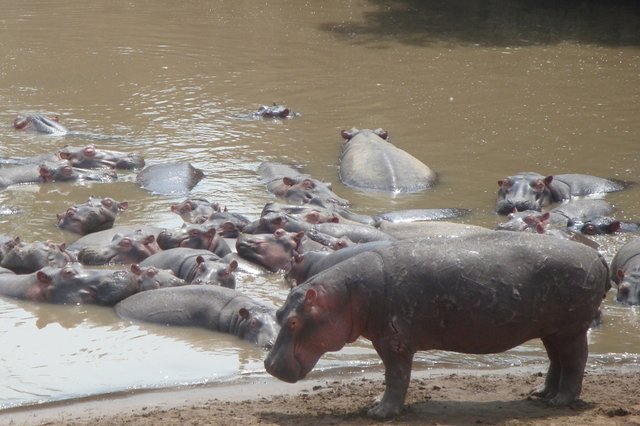Hippos Are Vital to the Silicon Cycle

Hippos are increasingly becoming scarce in Africa as years of hunting, pollution, and habitat destruction have continued to take their toll. There was a 90% decline of African hippos in the the last several decades. There's more bad news than just the potential loss of hippos as a wild species, however, a team examined the hippos' impact on their environment and found the large animal to be a keystone species.
A keystone species is a species that serves as a linchpin for the entire local ecosystem, remove a keystone species and you'll see potentially disastrous effects on the surrounding wildlife. Hippos themselves spend much of the night consuming silicon-rich grasses from the savannahs and most of the day remaining in the river. Hippos, in essence act as transportation for the silicon from the rich grasses to the poor river and account for as much as 76% of the silicon flowing in the Mara River that ends up in Lake Victoria.
The silicon is an essential nutrient for algae in the water that produce oxygen and form the bottom of the foodchain. If the supply of silicon were to be exhausted, the population of algae could go with it, leaving the waters of the lake without enough oxygen for aquatic creatures and triggering a potential chain reaction across multiple foodwebs. According to the team, the lake currently has enough silicon remaining to act as a buffer for several decades more, assuming current consumption levels continue, however, a long term solution is going to have to be planned considering how important fishing is to the local inhabitants' food supply.
Read more: http://rsci.nl/vr7
Image: Jonas Schoelynck
To listen to the audio version of this article click on the play image.

Brought to you by @tts. If you find it useful please consider upvoting this reply.